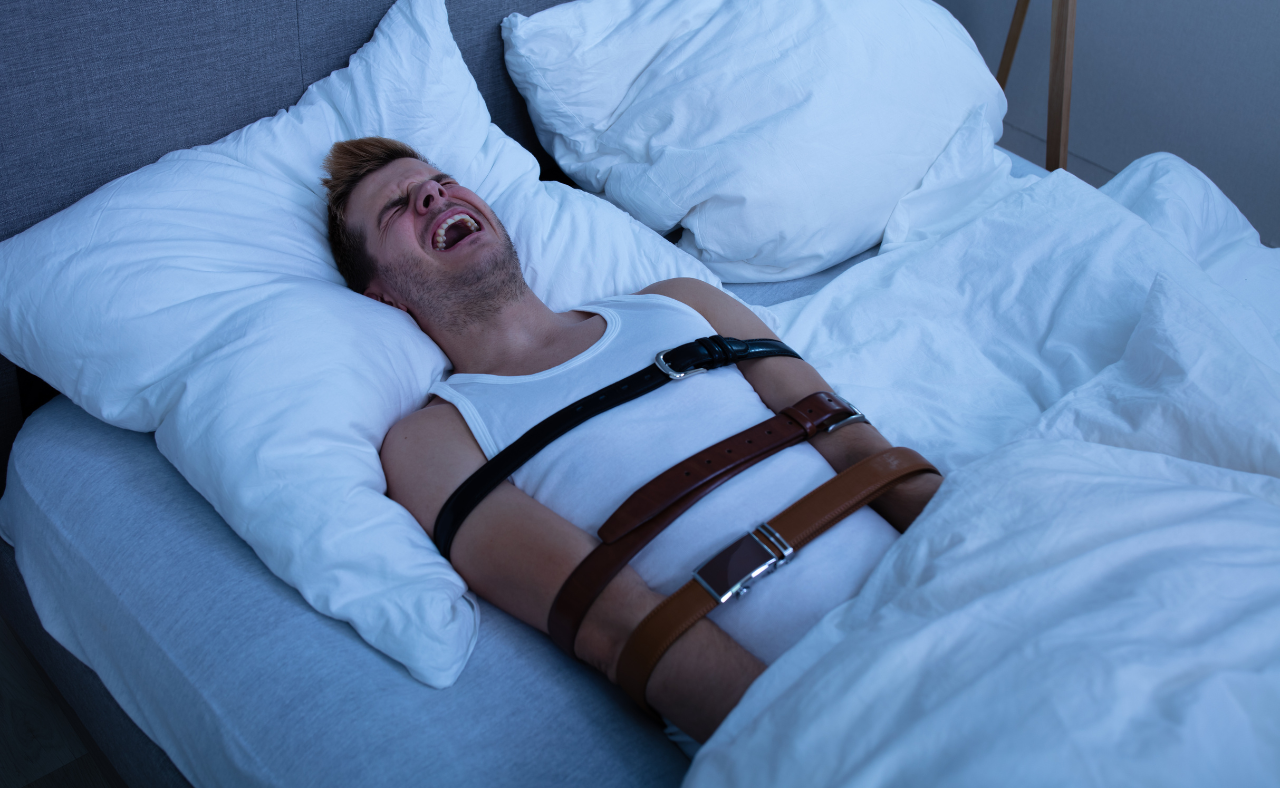Sleep paralysis is a phenomenon that can be both terrifying and perplexing. During an episode, you might find yourself awake but unable to move or speak, often accompanied by a sense of dread or hallucinations. Understanding sleep paralysis, its risk factors, and how to manage it with home remedies can help alleviate its impact on your life. This article will guide you through everything you need to know.
Sleep paralysis is a condition that has puzzled and frightened people for centuries. It’s often described as waking up while your body is still in the midst of sleep, leaving you unable to move or react. For many, these episodes can be accompanied by vivid hallucinations and a profound sense of fear. Although it’s a benign condition, the experience can be disturbing and have lingering effects on one’s mental well-being. We aim to demystify sleep paralysis by explaining its causes and risk factors, and providing practical home remedies to help manage and reduce its occurrence.
Understanding Sleep Paralysis
What is Sleep Paralysis?
Sleep paralysis occurs when you temporarily experience an inability to move or speak while falling asleep or waking up. This state happens during the transition between wakefulness and sleep, where your mind is conscious, but your body remains in a state of REM (rapid eye movement) atonia.
Causes of Sleep Paralysis
The exact cause of sleep paralysis is not fully understood, but it’s believed to be linked to disrupted REM sleep. During REM sleep, the body naturally goes into a state of atonia, or muscle paralysis, to prevent acting out dreams. If you wake up or fall asleep before this paralysis has ended, you might experience sleep paralysis.
Symptoms of Sleep Paralysis
Common symptoms include the inability to move or speak, a sensation of pressure on the chest, and hallucinations. These hallucinations can be visual, auditory, or tactile and are often perceived as threatening.
Risk Factors for Sleep Paralysis

Sleep Deprivation
Lack of adequate sleep is one of the primary risk factors for sleep paralysis. Irregular sleep patterns and insufficient rest can disrupt the normal sleep cycle and increase the likelihood of an episode.
Sleep Disorders
Conditions such as narcolepsy, insomnia, and sleep apnea are associated with higher incidences of sleep paralysis. These disorders disrupt the normal sleep cycle, making it more likely for an individual to experience sleep paralysis.
Stress and Anxiety
High levels of stress and anxiety can interfere with your sleep patterns and contribute to the occurrence of sleep paralysis. Mental health plays a significant role in maintaining healthy sleep cycles.
Sleep Position
Sleeping on your back has been linked to an increased risk of experiencing sleep paralysis. This position can affect breathing and lead to more frequent disruptions in sleep.
10 Home Remedies for Sleep Paralysis
1. Maintain a Regular Sleep Schedule
One of the most effective ways to prevent sleep paralysis is to establish a consistent sleep schedule. Aim for 7-8 hours of sleep each night, and try to go to bed and wake up at the same time every day, even on weekends.
2. Create a Relaxing Bedtime Routine
Develop a calming pre-sleep routine to signal your body that it’s time to wind down. This can include activities like reading a book, taking a warm bath, or practicing relaxation exercises.
3. Avoid Stimulants Before Bed
Reduce your intake of caffeine, nicotine, and other stimulants, especially in the hours leading up to bedtime. These substances can interfere with your ability to fall asleep and stay asleep.
4. Reduce Screen Time
The blue light emitted by phones, tablets, and computers can disrupt your sleep cycle. Try to avoid screens at least an hour before bed, or use blue light filters if necessary.
5. Manage Stress and Anxiety

Incorporate stress-reducing activities into your daily routine. Techniques such as meditation, yoga, deep breathing exercises, and mindfulness can help alleviate anxiety and improve sleep quality.
6. Sleep on Your Side
Changing your sleep position can make a significant difference. Sleeping on your side instead of your back can reduce the likelihood of experiencing sleep paralysis.
7. Keep Your Sleep Environment Comfortable
Ensure that your bedroom is conducive to sleep. This means keeping the room cool, dark, and quiet. Investing in a comfortable mattress and pillows can also improve your sleep quality.
8. Limit Alcohol and Heavy Meals
Avoid consuming alcohol and large meals close to bedtime. Alcohol can disrupt your sleep cycle, and heavy meals can cause discomfort, both of which can increase the risk of sleep paralysis.
9. Use Essential Oils
Certain essential oils, such as lavender and chamomile, have calming properties that can promote relaxation and better sleep. Consider using a diffuser or adding a few drops to your pillow before bed.
10. Practice Good Sleep Hygiene
Good sleep hygiene involves habits that promote consistent, uninterrupted sleep. This includes keeping a regular sleep schedule, creating a restful environment, and avoiding activities that can interfere with sleep.
Additional Tips for Managing Sleep Paralysis
Stay Calm During an Episode
If you find yourself experiencing sleep paralysis, try to remain calm. Remember that it’s a temporary condition and will pass. Focus on controlling your breathing and reminding yourself that you are safe.
Seek Professional Help
If sleep paralysis becomes frequent or severely impacts your life, consider seeking help from a healthcare professional. They can help identify any underlying conditions and recommend treatments.
Educate Yourself

Learning more about sleep paralysis can reduce the fear and anxiety associated with it. Understanding that it’s a common and benign condition can help you cope better during episodes.
Share Your Experiences
Talking about your experiences with friends, family, or support groups can provide emotional support and reduce feelings of isolation. Others may also offer useful tips and strategies that have worked for them.
Final Thoughts
Sleep paralysis, though frightening, is generally a benign condition that can be managed with the right strategies. By understanding the risk factors and implementing practical home remedies, you can reduce the frequency and intensity of sleep paralysis episodes. Maintaining a regular sleep schedule, managing stress, and practicing good sleep hygiene are all crucial steps in promoting better sleep health. If sleep paralysis persists or significantly impacts your life, don’t hesitate to seek professional help. With the right approach, you can take control of your sleep and improve your overall well-being. You can also check our home remedies topics on
- 10 Home Remedies for Neck Pain & Its Prevention Methods
- Home Remedies for Clear and Clean Skin
- Home Remedies for Migraines and Extreme Pain
- Home Remedies for Diabetic Patients
- Best Home Remedies to Get Rid of Dark Circles
- 10 Home remedies to prevent or reduce Hairfall organically
- 10 Home Remedies for BP Patients
Managing sleep paralysis starts with taking proactive steps to improve your sleep quality. By incorporating these home remedies and being mindful of the risk factors, you can create a sleep environment that promotes rest and relaxation. Remember, achieving good sleep health is a journey, and with patience and persistence, you can overcome the challenges of sleep paralysis and enjoy more restful nights.







